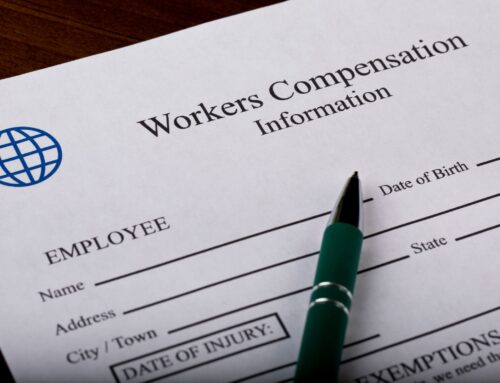For many workers in New Jersey, seasonal and part-time positions are a practical solution for extra income, flexible hours, or short-term employment. However, these types of jobs often come with uncertainties—especially regarding benefits. One common question is whether seasonal and part-time workers are eligible for workers’ compensation if they are injured on the job. This guide explains how seasonal workers compensation in NJ works, outlines the rights of part-time employees, and provides steps for filing a claim in the event of an injury.
Eligibility for Workers’ Compensation in New Jersey for Part-Time and Seasonal Employees
In New Jersey, workers’ compensation coverage is mandatory for most employers, and it generally applies to all employees, including those who work part-time or seasonally. The main requirement is that the worker has employee status rather than being an independent contractor. This means that part-time workers comp eligibility is the same as that for full-time employees. As long as you’re officially on the employer’s payroll, you should be entitled to workers’ comp benefits if you’re injured while performing work-related tasks.
For seasonal employees, the rules are similar. New Jersey law ensures that if a seasonal employee sustains a work-related injury or illness, they are eligible for benefits to cover medical treatment, temporary disability, and permanent disability benefits. The main factor is that the injury occurred while the worker was performing their job duties. Consulting with a workers compensation attorney NJ can be helpful if there’s any dispute about your eligibility as a part-time or seasonal worker.
Common Injuries Faced by Seasonal and Part-Time Workers
Seasonal and part-time roles can come with their own unique risks, depending on the industry and job tasks. Common injuries for seasonal and part-time employees in New Jersey may include:
- Repetitive Motion Injuries: Jobs that involve repeated actions, such as stocking shelves or operating machinery, can lead to repetitive stress injuries over time, even during short-term employment.
- Slips, Trips, and Falls: Seasonal and part-time workers in roles like retail, landscaping, or hospitality are often on their feet for long hours, increasing the risk of slip-and-fall accidents.
- Lifting and Strain Injuries: Part-time employees may be required to lift heavy objects or equipment, putting them at risk for back injuries or muscle strains.
It’s crucial for all workers to report any injuries promptly to their employer. Waiting to report an injury could complicate the claims process or lead to a denial. Seasonal employee rights NJ support access to benefits when injuries are reported in a timely manner.
How to File a Workers’ Compensation Claim as a Seasonal or Part-Time Employee
If you’re a part-time or seasonal worker who has been injured on the job, the process for filing a workers’ comp claim is generally the same as it is for full-time employees. Here’s how to ensure your claim is handled effectively:
- Report the Injury to Your Employer: Immediately report the injury to your supervisor or HR department. New Jersey requires that work-related injuries be reported to an employer as soon as possible. Early reporting helps ensure that your employer has a record of the incident, which is crucial for your claim.
- Seek Medical Attention and Keep Documentation: Obtain medical treatment from an approved healthcare provider if required by your employer’s workers’ comp insurance. Keep copies of all medical reports, prescriptions, and any documentation that connects your injury to your job duties. This will be invaluable evidence if there are any questions about your part-time workers comp eligibility.
- File Your Claim Promptly: File your workers’ compensation claim as soon as you’re able. For workers comp for part-time employees NJ, the claim filing process involves completing forms provided by your employer or the workers’ compensation insurance carrier. Follow up regularly with your employer or a workers compensation attorney NJ to check on the status of your claim.
- Consult an Attorney if Needed: If you encounter challenges, such as an employer disputing your claim or refusing to file it, seek advice from a workers’ compensation attorney. An experienced attorney can assist in ensuring your rights are protected and that you receive fair treatment under New Jersey’s workers’ compensation laws.
Filing a claim promptly and accurately can make a difference in whether you receive the benefits to which you’re entitled.
Whether you’re a part-time worker or employed seasonally, workers compensation in NJ is designed to protect you if you’re injured while performing job-related duties. Understanding your rights and responsibilities as a non-full-time worker can help ensure that you receive the necessary support and benefits in the event of an injury. If you’re unsure about your eligibility or need assistance with your claim, consulting with a workers compensation attorney NJ can provide the clarity and advocacy you need. Don’t hesitate to seek guidance—your rights matter, and you deserve protection under New Jersey law.






